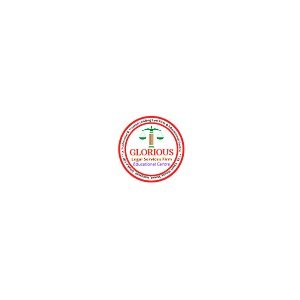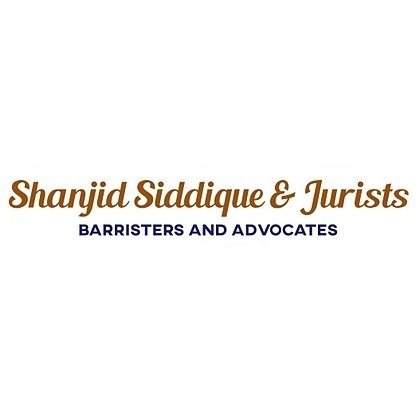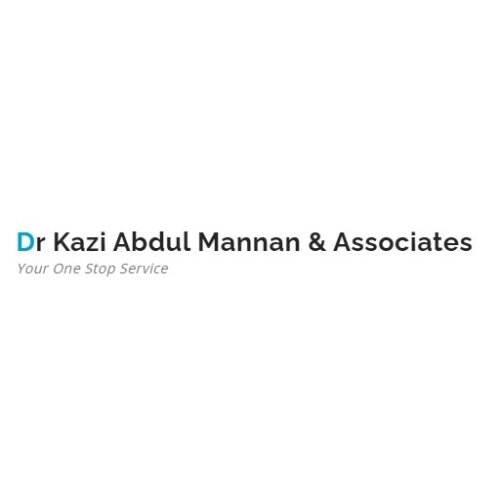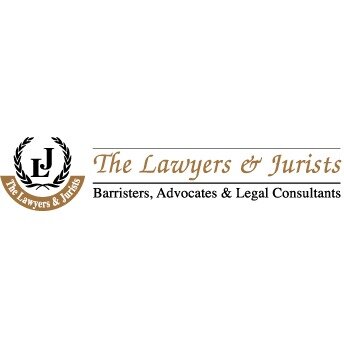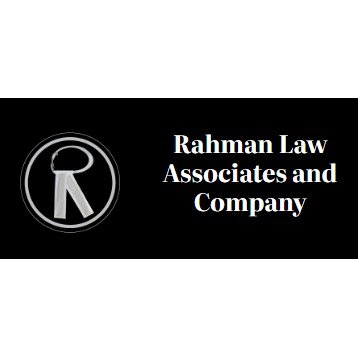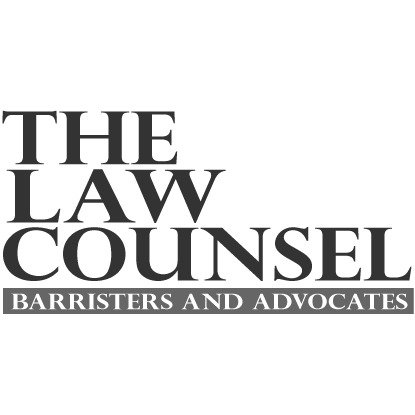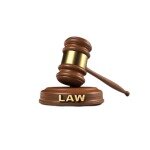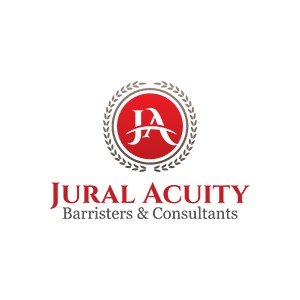Best Child Abuse Lawyers in Bangladesh
Share your needs with us, get contacted by law firms.
Free. Takes 2 min.
Free Guide to Hiring a Family Lawyer
Or refine your search by selecting a city:
List of the best lawyers in Bangladesh
About Child Abuse Law in Bangladesh
Child abuse in Bangladesh encompasses a range of harmful actions directed towards children, including physical, emotional, and sexual abuse. Recognizing the severity of this issue, Bangladesh has established legal frameworks to address and prevent child abuse. Despite legal efforts, cultural, socioeconomic, and enforcement challenges remain. Understanding these laws is crucial for effectively safeguarding children's rights and ensuring their welfare.
Why You May Need a Lawyer
There are numerous situations where seeking legal assistance for child abuse may be important in Bangladesh. These include cases where a child is a victim of abuse by family members, caregivers, or strangers; when there is a need to navigate the legal system for child protection orders; in situations involving child custody disputes where abuse allegations are present; and for representation in criminal cases against accused abusers. Legal professionals can also assist in reporting abuse and advocating for victims’ rights in court.
Local Laws Overview
Child abuse laws in Bangladesh are governed primarily by several key pieces of legislation:
The Children Act, 2013: This Act provides a comprehensive framework for the protection of children and the establishment of Child Welfare Boards and Child-Friendly Courts.
The Women and Children Repression Prevention Act, 2000 (amended in 2003): This Act outlines legal measures against violence towards women and children, including stringent penalties for child abuse offenses.
The Penal Code, 1860: While older, this code outlines criminal offenses and penalties, including those relevant to child abuse.
These laws aim to ensure the protection of children from abuse, neglect, and exploitation, and provide avenues for legal redress.
Frequently Asked Questions
What constitutes child abuse under Bangladeshi law?
Child abuse in Bangladesh includes physical harm, sexual abuse, emotional abuse, and negligent treatment or exploitation of a child.
Who can report child abuse?
Anyone who suspects child abuse, including family members, neighbors, social workers, educators, and the general public, can report it to the authorities.
What should I do if I suspect a child is being abused?
If you suspect child abuse, contact local law enforcement or child protection services immediately. You may also reach out to local non-governmental organizations for assistance.
How can I access legal assistance for a child abuse case?
Legal assistance can be accessed through professional legal services, non-profit organizations specializing in child welfare, or government legal aid services.
What penalties do offenders face for child abuse?
Penalties for child abuse in Bangladesh vary depending on the severity of the abuse, ranging from fines and imprisonment to more severe sentences for grievous offenses.
Are there any special courts for child abuse cases?
Yes, The Children Act, 2013 provides for the establishment of Child-Friendly Courts to ensure sensitive and appropriate handling of cases involving children.
Can a child’s testimony be used in court?
Yes, a child's testimony can be used in court, especially in Child-Friendly Courts where measures are taken to ensure the child’s comfort and safety during proceedings.
What support is available for child abuse victims?
Victims of child abuse may receive counseling, medical care, and legal support from government agencies and non-governmental organizations.
What role do NGOs play in child abuse cases?
Non-Governmental Organizations (NGOs) often support law enforcement by providing services such as counseling, legal aid, and advocacy for child rights and protection.
Can child abuse cases be reopened?
Yes, child abuse cases can be reopened if new evidence emerges or if there are grounds to believe that justice was not served in the initial proceedings.
Additional Resources
Individuals seeking assistance with child abuse cases in Bangladesh can approach several resources:
Ministry of Women and Children Affairs: Offers comprehensive support services including legal assistance and protection for child abuse victims.
Bangladesh National Child Rights Council (BNCRC): An organization focusing on advocating for children's rights and providing necessary support in abuse cases.
Non-Governmental Organizations (NGOs): Such as Save the Children Bangladesh and Bangladesh Shishu Adhikar Forum (BSAF) support victims through social services, legal aid, and counseling.
Next Steps
If you need legal assistance in a child abuse case, consider taking the following steps:
Contact Legal Professionals: Reach out to a lawyer experienced in family law and child protection for legal advice and representation.
Report to Authorities: Immediately report to local police or child protection agencies to ensure the child's safety and begin any necessary legal proceedings.
Seek Support Services: Engage with NGOs and government services that provide counseling and other support for the child and family members involved.
Document Evidence: Collect and preserve any evidence, such as medical reports or witness statements, that may be required for legal proceedings.
By taking these steps, you can play a crucial role in protecting the rights and welfare of children and ensuring justice for victims of abuse.
Lawzana helps you find the best lawyers and law firms in Bangladesh through a curated and pre-screened list of qualified legal professionals. Our platform offers rankings and detailed profiles of attorneys and law firms, allowing you to compare based on practice areas, including Child Abuse, experience, and client feedback.
Each profile includes a description of the firm's areas of practice, client reviews, team members and partners, year of establishment, spoken languages, office locations, contact information, social media presence, and any published articles or resources. Most firms on our platform speak English and are experienced in both local and international legal matters.
Get a quote from top-rated law firms in Bangladesh — quickly, securely, and without unnecessary hassle.
Disclaimer:
The information provided on this page is for general informational purposes only and does not constitute legal advice. While we strive to ensure the accuracy and relevance of the content, legal information may change over time, and interpretations of the law can vary. You should always consult with a qualified legal professional for advice specific to your situation.
We disclaim all liability for actions taken or not taken based on the content of this page. If you believe any information is incorrect or outdated, please contact us, and we will review and update it where appropriate.
Browse child abuse law firms by city in Bangladesh
Refine your search by selecting a city.




